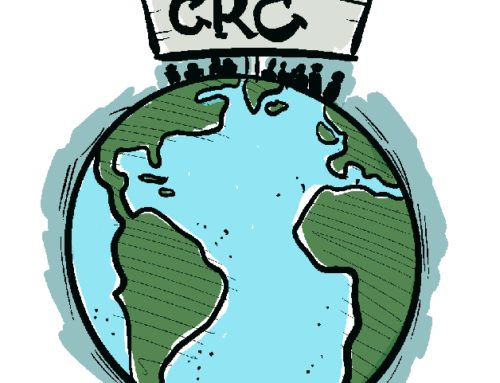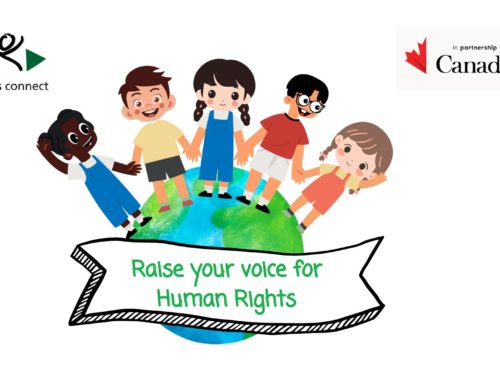The OPIC, a unique instrument that has yet to be ratified by many States
Seven years have passed since the entry into force of the Optional Protocol on an Individual Communications procedure (OPIC), an international human rights treaty that allows the UN Committee on the Rights of the Child (CRC Committee) to hear complaints alleging that a child’s rights have been violated and to conduct inquiries into grave or systematic violations of children’s rights in States parties to the OPIC. The OPIC is an essential mechanism to ensure accountability for child rights violations. Yet, the number and rate of ratification of this instrument remains low and slow, especially in comparison with the wide ratification of the UN Convention on the Rights of the Child (UNCRC). In 2021, 48 States had ratified the instrument, 17 had signed but not yet ratified it, and 132 had taken no action. Albeit that the last two years have seen a decline in ratification efforts across the board due to States’ attention focused on responses to the COVID-19 pandemic, the current rate of ratification implies a further 20 years before 80% of States parties to the UNCRC ratify this instrument, and almost 30 years for all 196 States to be parties.
In 2021, 48 States had ratified the instrument, 17 had signed but not yet ratified it, and 132 had taken no action. Albeit that the last two years have seen a decline in ratification efforts across the board due to States’ attention focused on responses to the COVID-19 pandemic, the current rate of ratification implies a further 20 years before 80% of States parties to the UNCRC ratify this instrument, and almost 30 years for all 196 States to be parties.
As documented in the 2019 outcome report of Child Rights Connect’s expert consultation on the OPIC, given the relative youth of the instrument, OPIC ratification is challenged by a general lack of awareness and understanding of this instrument and its dimensions by both State and non-State actors, including children’s rights defenders, children, lawyers and other actors. The potential of the OPIC to bring justice and remedies to child victims of human rights violations is still largely underestimated, including due to political misconceptions fueling States’ reluctance to ratify the OPIC and lack of prioritization of child access to justice at all levels, along with poor levels of funding for work on this issue. For instance, in Nepal, OPIC ratification is challenged by a governmental policy focusing on implementing instruments to which the State is already party; a fear of additional legal, administrative and financial burden following ratification; a fear of conflict-era violations being brought to the Committee (potentially involving those holding positions of power); and the lack of understanding that OPIC is a tool that can help strengthen national redress and child protection mechanisms (as demonstrated in Child Rights Connect’s OPIC Ratification Toolkit). The 2019 roundtable outcome report nevertheless identified that practical and/or perceived barriers to State ratification can be challenged and overcome, including through better awareness and understanding of the instrument and its dimensions, the exchange of good practices and child-led advocacy for ratification and implementation.
The lack of child-accessible and -sensitive national justice systems and mechanisms in many countries around the world means that, in the absence of OPIC ratification, child victims of human rights violations are left with virtually no access, or inadequate access, to effective remedies and reparation, which fuels impunity, social injustice, discrimination and further human rights violations. This is particularly critical as the COVID-19 pandemic has exacerbated child rights violations, with many children pushed out of education and families facing increased poverty around the world. In addition to the added value of using the OPIC to ensure redress for individual child victims, using this instrument can lead to wider, systemic change. The CRC Committee can mandate law and policy reform in its Views on individual communications, thereby benefiting a much larger group of children than those directly targeted in CRC decisions, with sometimes even a cross-border effect (for instance, concerning migrant children).1 Further, addressing access to justice for children can act as a key entry point for realizing the wide range of substantive child rights enshrined in the UNCRC. The multiplier effect of the emergence of global jurisprudence implementing children’s rights also stems from the fact that, increasingly, international jurisprudence is referred to by domestic courts in their decision-making on cases, even when cases stem from other jurisdictions.
What Child Rights Connect did to fill in these gaps
In response to these challenges, and building on its universal ratification campaign launched in April 2019 and subsequent research, advocacy, capacity-building and technical assistance, Child Rights Connect in 2021 pursued its two-fold strategy: (i) engaging in a constructive dialogue with States to increase their awareness and understanding of, and build their political acceptance of this instrument; and (ii) developing the capacity of non-State actors to boost their own ratification advocacy (in line with its Strategic Goal 4 on advancing OPIC ratification and implementation). Child Rights Connect’s advocacy work was gradually reactivated in 2021, in recovery of 2020 where efforts to advocate for OPIC ratification were frustrated by the pandemic which significantly reduced opportunities for direct engagement with State representatives, for CRCnct, its members and partners, and the CRC Committee.
Institutionalizing the annual exchange meeting on OPIC between States and the CRC Committee
On the front of State engagement, in June 2021 during the 89th pre-session of the Committee, jointly with the Permanent Missions of the Federal Republic of Germany and the Republic of Slovenia, as co-chairs of the Group of Friends on the Rights of the Child, and in partnership with the CRC Committee and the Office of the United Nations High Commissioner for Human Rights (OHCHR), Child Rights Connect co-convened the second annual exchange meeting on the OPIC between States and the CRC Committee. This gave renewed impetus to OPIC-related and access to justice discussions at the international level. The meeting gathered nearly 100 participants, representing more than 50 States, amongst which 58 per cent had taken no steps vis a vis OPIC ratification prior to the meeting. Built on the understanding that the OPIC is a unique tool to better fulfil child rights at the national level and strengthen the implementation of the UNCRC, this event provided space for the States and the CRC Committee to openly exchange on challenges and opportunities brought by the instrument. This platform also addressed the need to provide evidence-based arguments to convince States to ratify the OPIC, with Spain for instance sharing an example of what can be achieved when the instrument is effectively used and implemented at the national level. The meeting was also an occasion for Child Rights Connect to raise awareness amongst States of its OPIC Ratification Toolkit, which explains the importance of ratifying the OPIC and provides concrete information, strategies and arguments that can be used to advocate for its ratification (including for State officials to push for ratification from the inside). The Permanent Missions of the Federal Republic of Germany and the Republic of Slovenia, along with the CRC Committee and OHCHR, voiced strong support for the institutionalization of this annual exchange, as a tool for generating a better understanding of the instrument and its added value and advancing towards the universal ratification and implementation of the OPIC.
Child Rights Connect co-convened the second annual exchange meeting on the OPIC between States and the CRC Committee.2 This gave renewed impetus to OPIC-related and access to justice discussions at the international level. The meeting gathered nearly 100 participants, representing more than 50 States, amongst which 58 per cent had taken no steps vis a vis OPIC ratification prior to the meeting.
HLPF event: consolidating OPIC and child access to justice on the SDGs agenda
In parallel, with the support of the Permanent Missions of the Federal Republic of Germany, the Republic of Slovenia and the Kingdom of Belgium in New York as well as of the Child Rights International Network (a Child Rights Connect member), during the 2021 High Level Political Forum (HLPF) in July, Child Rights Connect together with the CRC Committee and UNICEF organised a side-event on “Equitable access to justice for all children”. The event brought together more than 160 participants, including representatives from different States, civil society, UN agencies and child human rights defenders (CHRDs) to discuss the often-neglected issue of access to justice for child victims of human rights violations, yet critical to achieving the Sustainable Development Goals. This was the first time that the CRC Committee and Child Rights Connect co-organised an event at the HLPF, as well as the first time that access to justice and OPIC were addressed within this framework (the core UN platform to follow-up and review of the 2030 Agenda for the Sustainable Development).

The discussions contributed to clarifying the meaning and scope of access to justice, challenging common misconceptions, and allowed participants to discuss the various avenues that children can – and do – pursue to claim their rights, the barriers they face when doing so and the possible ways to overcome these. “Not just as a climate activist, but as a young person, overall, I think people care very much about protecting children and giving us special care. But what I realized over the past years is that they care less about giving us agency and the actual tools to challenge the violation of our rights. And I really do think that it is time for us to, you know, change the perspective on children, change the discourse surrounding children and starts seeing us as defenders of our own rights, rather than powerless victims who need special care and protection only. And I think that is essentially what children’s access to justice is about: giving them tools and agency to protect themselves. And that is what today’s event is also about”, said a Korean CHRD who took part in the event. Many speakers and attendees, including several CRC Committee members and representatives of the Permanent Missions of Germany and Slovenia, took this opportunity to encourage States to ratify the OPIC.
The event was also an occasion for Child Rights Connect to press for the CRC Committee to ensure that more targeted recommendations on child access to justice, including through OPIC ratification and implementation, are incorporated within its Concluding Observations to influence State decisions at the national level.
“Not just as a climate activist, but as a young person, overall, I think people care very much about protecting children and giving us special care. But what I realized over the past years is that they care less about giving us agency and the actual tools to challenge the violation of our rights. And I really do think that it is time for us to, you know, change the perspective on children, change the discourse surrounding children and starts seeing us as defenders of our own rights, rather than powerless victims who need special care and protection only. And I think that is essentially what children’s access to justice is about: giving them tools and agency to protect themselves. And that is what today’s event is also about”, said a Korean CHRD who took part in the event.
World Congress on Justice with Children: broad capacity-building on OPIC ratification and implementation
On the front of supporting CSO-led advocacy for OPIC ratification, and in addition to the capacity-building provided to children, children’s rights defenders and other non-State actors in specific countries/regions (see the other case study under Strategic Priority 4), Child Rights Connect organized an online training session on the OPIC as part of the 2021 World Congress on Justice with Children hosted by the Federal Mexican Supreme Court of Justice and co-organised by the founding partners of the Global Initiative on Justice with Children (an international platform gathering children alongside policymakers, legal practitioners, academics, and CSO representatives with relevant work experience to influence child justice). Through this event, more than 150 children’s rights defenders, other CSO representatives, academics, State representatives and representatives from UN agencies and intergovernmental bodies gained increased awareness and understanding of the OPIC and its mechanisms, and of the links between access to non-discriminatory, child-friendly, and inclusive justice systems and the OPIC, and learned from other national OPIC ratification and implementation experiences.

Africa in focus: providing technical assistance to civil society on OPIC ratification
In implementation of its regionally focused strategy allowing to design strategies tailored to the context and partners, and building on previous research, in 2021 Child Rights Connect prioritized support to CSO-led campaigns in Africa. Through technical advice and resource sharing, including briefing on the OPIC Ratification Toolkit and updated OPIC InfoPack, Child Rights Connect supported CSO advocacy campaigns with a focus on Ivory Coast, where a consultative process among civil society and State engagement is ongoing, and South Africa, where the ratification process keeps advancing. Child Rights Connect also offered technical support to CSOs in Senegal.

What difference did this make: improved political consensus for OPIC ratification and CSO empowerment
This work has led to multilevel results. Child Rights Connect’s joint work with the State-led Group of Friends on the Rights of the Child and UN partners has contributed to put the OPIC (back) on the agenda of child rights and other civil society organisations and States, after practically two years of de-prioritization of child rights in the context of the pandemic, and historic lack of prioritization of child access to justice issues. Both State and non-State actors have been empowered with an improved awareness and understanding of the OPIC, its dimension and added value, as a pre-requisite for acting towards ratification and implementation of the instrument. Empowerment is key to fostering civil society action. “I am glad about the knowledge shared as I will be able to help, impact and contribute to the lives of children around me and in the country at large” said a female CSO representative from Cameroon after participating in the online training around the World Congress. Follow-up engagement with the actors who took part in the above-cited initiatives shows the gradual emergence of a momentum, particularly amongst civil society, on issues of child access to justice. “Many thanks for your e-mail: eagerly awaited. I have already been busy thinking about advocacy. This week I published a very critical article in the newspaper and received huge compliment from [a former Chair of the CRC Committee]. […] I am most grateful with the very helpful workshop and will most certainly be in touch as I intend to publish shortly on the OPIC”, said a male lawyer from the Netherlands after participating in the online training around the World Congress.
“I am glad about the knowledge shared as I will be able to help, impact and contribute to the lives of children around me and in the country at large” said a female CSO representative from Cameroon after participating in the online training around the World Congress.
The space provided for States to directly exchange amongst one another, and with the CRC Committee and other key stakeholders, about the added value of the OPIC has contributed to demystify the instrument and remove largely perceived barriers as well as, critically, build political acceptance of and support for this international human rights treaty. Though this is difficult to measure, the level of openness of State representatives from several countries during the annual exchange meeting testifies to a gradual changed attitude, for the positive, towards OPIC ratification (also testified to by the fact two countries have ratified the OPIC in 2021 – Armenia and the Seychelles – while none had done so in 2020). A State representative for example highlighted how these kinds of meetings are helpful for those whose country has not ratified the OPIC as it provides information on the trends of jurisprudence and relevant developments which can then be shared with authorities at the capital level. Calls from Germany and Slovenia encouraging their peers to engage with authorities in the capital (“We hope you will write reports to your capitals and strengthen the ratification and implementation procedures in your respective countries” said Germany’s representative) were heard and acted on, to some extent. An emblematic case comes from South Africa: following her active participation in the exchange meeting between States and the CRC Committee and follow up technical assistance through a CRC Committee member, a State representative from South Africa used Child Rights Connect’s Ratification Toolkit in an internal report to relevant national State authorities to provide evidence-based arguments in favor of OPIC ratification. OPIC ratification is advancing in the country, with the topic under consideration at the relevant Ministry level.
“We hope you will write reports to your capitals and strengthen the ratification and implementation procedures in your respective countries” said Germany’s representative
Finally, open and frank discussions with the CRC Committee have contributed to develop and broaden their approach on child access to justice, even beyond OPIC ratification and implementation, which in turn has influenced the development of more focused recommendations to States on this topic (both State parties to the OPIC, and non-States parties). For instance, in its Concluding Observations to Luxemburg during the 87th session in May-June 2021, the Committee recommended that Luxemburg “increase children’s awareness of their rights under the OPIC and […] ensure that children have access to remedies at the domestic level”. Similarly, through its Concluding Observations as part of the 88th session in September-October 2021, the CRC Committee directed Poland to ratify the OPIC “in order to further strengthen the fulfilment of children’s rights and the access to justice”. This shows that the CRC Committee is more and more clearly articulating the links between access to justice and the OPIC in its recommendations to States, and promoting an understanding among States that, through the OPIC, all child rights as enshrined in the UNCRC can be fulfilled. This is a continuation of a trend by the CRC Committee, encouraged by Child Rights Connect, to make more detailed OPIC recommendations, including to States already party to the instrument. This can be impactful in informing both civil society advocacy, and State’s implementation of their obligations under the UNCRC and its Optional Protocols. These more targeted recommendations equip civil society with advocacy arguments which are grounded on a more holistic approach to child access to justice, to effectively press for change at the national level. These can also influence States which are generally responsive to international pressure and support steps towards strengthening national protection and redress mechanisms and ensuring children’s effective access to national and international remedies (as an entry point for realizing other child rights).
Key lesson learned: advancing OPIC ratification takes solid, multilevel partnerships
A central lesson learned is that the partnership consolidated in 2021 with the Group of Friends on the Rights of the Child under the leadership of Germany and Slovenia, as well as with the CRC Committee and other UN bodies, has acted as a key enabling factor for fostering greater political understanding of and support for OPIC ratification. This remains the beginning of a process which requires continuously identifying and using different advocacy entry points, adapted to local contexts. The general context of de-prioritization of child rights calls for strong, mutually reinforcing advocacy initiatives at national, regional and international levels, which Child Rights Connect intends to pursue in several countries around the world where there is an opening for ratification, as resources allow.
Another key lesson learned is that building the ground for OPIC ratification is also about empowering civil society, including to effectively engage with State actors at all levels. OPIC ratification advocacy is a joint effort by a broad range of actors where everyone plays a key role.










